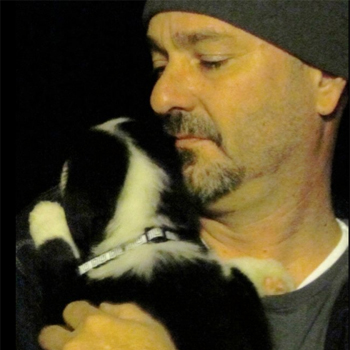Greg Gaither, M.A.
Greg Gaither, M.A. has spent more than 25 years deeply invested in new technologies in and around higher education. During that time he designed educational software, founded and managed one of the earliest independent ISPs in California, ran a new media company, and managed large voice and data networks and, more recently, large enterprise systems. He has presented at a number of higher education conferences over the course of his career.
Greg currently is Director of Academic Information Systems at the University of California at Santa Cruz and is a founding partner of Ramblestone LLC, a brand new venture dedicated to creating new models of social collaboration.
He has a Master of Arts in Creative Writing. He is a recipient of an Academy of American Poets award and has authored a book of poetry titled A Blue Stone. A transhumanating singularitarian, he lives in the Santa Cruz mountains with his wife and their menagerie of cats and dogs.
On the Singularity and the future of the species, Greg has said:
“‘More and more often I find myself taking both sides of an ever-narrowing argument concerning the future of our species, the utopian on the surface hopeful, if not confident, that homo sapiens will either find a way to coexist with our AI overlords or will find a place somewhere nice to escape them, the dystopian deep within resigned to becoming irrelevant for a few decades before becoming extinct.Ultimately there’s neither a way to predict a future after the Singularity nor is there a way to effectively control it. Augmented or not, we are severely limited intelligences constrained by our biology. We’ll never be able to compete with the progeny of our own creations, even if some or most of those progeny are on our side. I expect we’ll have thirty or forty very fast years to figure it out once that first sentient machine creates its own smarter and freer first sentient machine, but what a fantastically full thirty or forty years it will be.
I, for one, plan to be around to enjoy it. I also plan to be on the lifeboat escaping it when the time comes. Me, or a reasonable facsimile of me.
I love the Lifeboat Foundation effort for its optimistic belief that we can keep ourselves from being hoisted on our own technological petard. It’s a noble and interesting and worthwhile notion. Will it succeed? I firmly believe the answer to that is unknowable. Whatever the outcome, I’m happy just to be in the game.’”
Visit his Facebook page. Read his LinkedIn profile. Follow his X feed.
